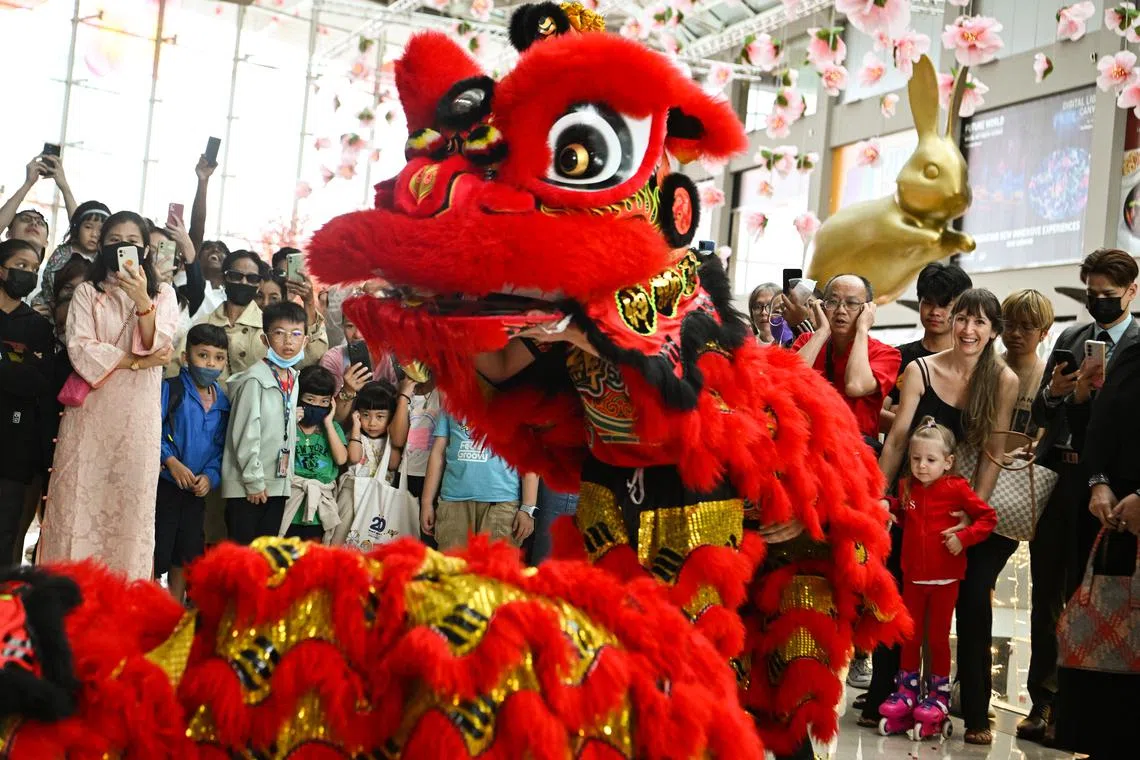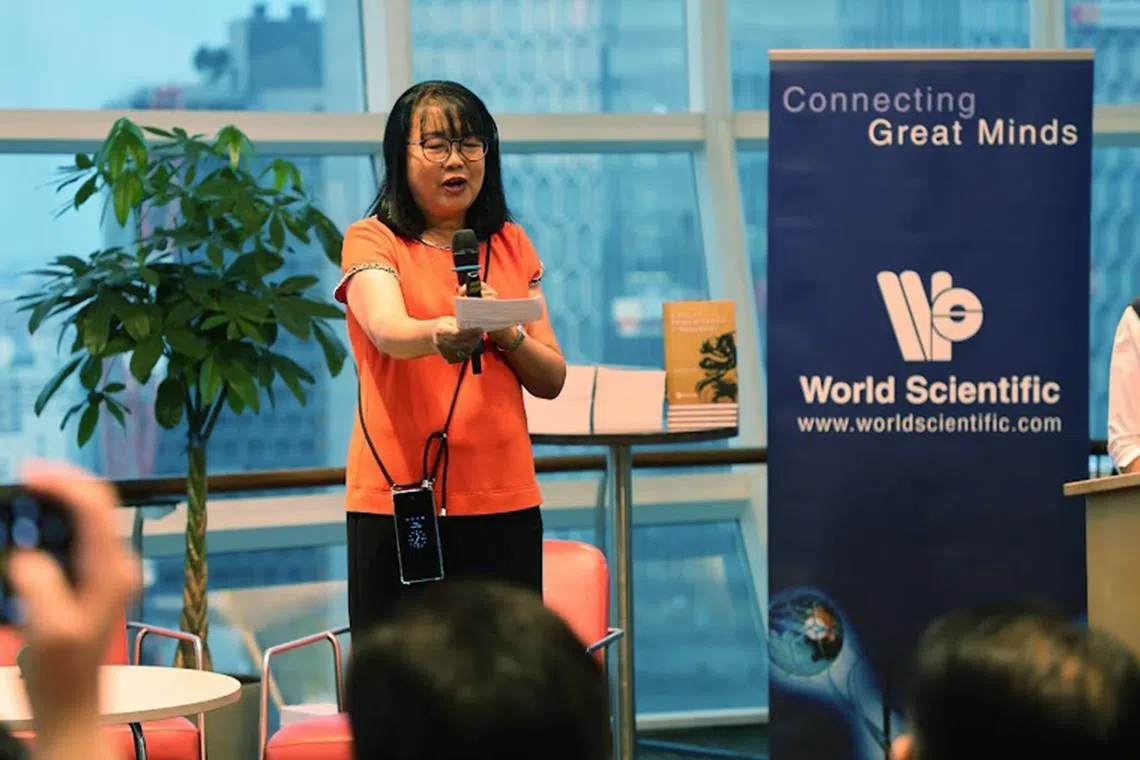Lion dance troupes in S’pore hard-pressed to interest the young in continuing the tradition
Sign up now: Get ST's newsletters delivered to your inbox
Lion dance is a sport, a performance art, and a cultural treasure. While it is still a common sight during Chinese New Year, lion dance troupes say they are facing a drop in popularity and find it increasingly difficult to recruit new members.
SINGAPORE - A common sight during Chinese New Year, the lion dance is considered not only an important cultural treasure, but also a sport and performance art.
However, there is growing concern among lion dance troupes that young people are less interested in continuing the practice and preserving the heritage of lion dance, whose history in Singapore dates back to the 1850s.
Since the 1980s, troupes have been reporting problems recruiting new members and the need to come up with new ways to attract the young.
Veteran lion dance instructor Chan Yew Kay, 67, who is senior adviser of the Singapore Hok San Association, said it has had problems engaging youngsters.
He said that might be because more Singaporeans are coping with hectic school and work schedules, and taking care of their families.
When asked what the association has been doing to engage more people, Mr Chan recalled how it worked with the Ministry of Manpower for a cultural exchange day.
On Feb 19, the association hosted migrant workers and River Valley High School students to give them a taste of lion dance.
“In past days, only Hok San Association’s long-serving members could really learn the tradition,” he said, adding that the association now teaches people from all walks of life.
“We are trying to pass the dance down. This is our culture. This is our tradition,” Mr Chan added.
Mr Royce Ang Boon Seng, a 47-year-old adviser for Qing Wei Lion and Dragon Cultural Troupe, said: “Youngsters nowadays have a lot of things in mind, a lot of interests in many other areas, not only lion dance.”
Despite worries, some young people in Singapore continue to promote and perform the lion dance.
Mr Loh Chui Rui, 22, vice president of NUS Lion Dance, said he first started learning the lion dance in secondary school.
It looked cool and special, he added, that is why he decided to learn how to do it.

Lion dance should be promoted to the young as it helps to develop patience and teamwork, said Ms Pauline Loh.
ST PHOTO: LIM YAOHUI
“We try to recruit as many people as possible,” he said, “because people are growing old in Singapore, and we really need young people to pass down this art.”
Ms Pauline Loh documented the history of this traditional practice in the Republic in her book Lion and Dragon Dance in Singapore, the first book covering this subject matter in English.
It was launched on Jun 19 and is supported by the National Heritage Board.
Lion dance in the early 1900s played an important role in a largely superstitious society; it was seen as a way to ward off evil spirits.
After WWII, new troupes appeared on the scene, such as the Singapore Chin Woo Athletic Association Lion Dance Troupe and the Sam Sui Wui Koon Singapore Lion Dance Troupe.
Troupes had more opportunities to perform and prospered. In 1949, the Hok San association performed at an international Save the Children fundraising event.
Cinema conglomerate Shaw Brothers Organisation also commissioned performances from these troupes. A popular venue for lion dances in the 1950s was New World Amusement Park.
“Many young people are becoming less aware of this rich lion dance culture.” Ms Loh said.

Ms Pauline Loh documented the history of this traditional practice in the Republic in her book Lion and Dragon Dance in Singapore.
PHOTO: PAULINE LOH
She said that even if troupes were to give talks at schools about the lion dance, that would only scratch the surface of it and not capture its rich heritage.
“Many schools in the past had lion dance as a co-curricular activity (CCA), but many have since dropped it.” Ms Loh added.
She said that happened probably because the noise from the instruments disrupts other CCAs and because there was no storage space for the large equipment such as lion heads and drums.
Ms Loh said there are schools in China that specialize in lion dance; it would help if young people in Singapore had something similar.
Lion dance should be promoted to the young, added Ms Loh, as it helps to develop patience and teamwork.
Then a new generation could prepare their performance under the guidance of older masters.


